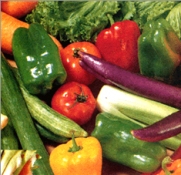
The move by the Food and Civil Supplies department came following a directive from Chief Minister Sheila Dikshit to either formulate a new law or to strengthen the Essential Commodities Act to have a greater grip over the wholesellers as well as retail outlets.
Last week, Dikshit had announced that her government was mulling brining a legislation to curb the rise in prices of food and essential commodities and to take appropriate action against hoarders and black-marketers.
The government has been finding it difficult to control prices at the retail outlets although it somehow managed to bring down the wholesale prices of various essential commodities as well as vegetables. It is learnt that government was keen on ensuring expeditious disposal of cases relating to offences like hoarding, black marketing and charging higher prices for essential commodities.
"We are looking at ensuring prompt punishment to the guilty," Dikshit said when asked about the proposed the law. Observing that the Essential Commodities Act, 1955 needs improvement, Dikshit said her government was determined to "plug the loopholes" in the system.
The Essential Commodities Act was enacted to ensure easy availability of essential commodities to the consumers and to protect them from exploitation by unscrupulous traders.
The Act provides for regulation and control of production, distribution and pricing of commodities, which are declared as essential, for maintaining or increasing supplies or for securing their equitable distribution and availability at fair prices.
Officials at the Food and Civil Supplies department said they "have started the process to plug the loopholes in strengthening the price control mechanism of essential commodities and vegetables."
They said currently the department was working on whether a new legislation was required or whether the existing Essential Commodities Act should be strengthened.
"The opinion of the Law department will also be taken before arriving at a final decision," they said. Aiming at providing some relief to people from spiralling prices of essential commodities, the government has already begun sale of ten varieties of pulses in nearly 400 outlets, including all Mother Dairy booths. In these outlets, pulses are available at Rs 5 to 10 less than the market rates.